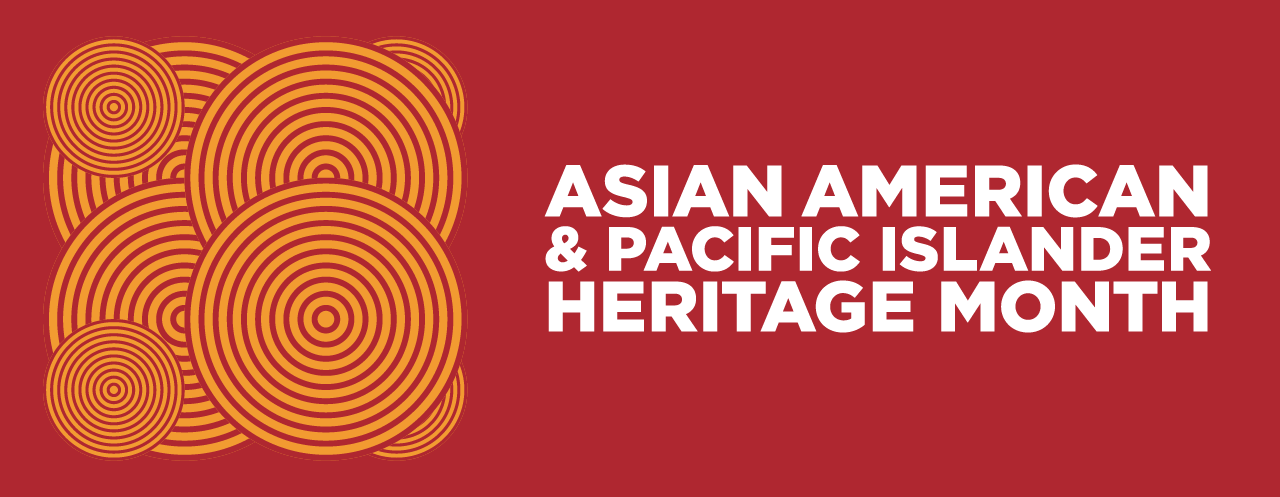Throughout Asian American & Pacific Islander Heritage Month, Austin Community College District (ACC) sits down with influential and accomplished faculty and staff to discuss what the month means to them.
Rennison Lalgee
Meet Dr. Rennison Lalgee, ACC Sociology and Social Work department chair and Sociology professor. He first taught at ACC in 2006 and has been full-time faculty for 11 years.
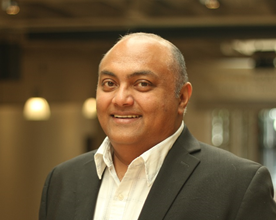
Why do you work at ACC?
Other than the chance to teach about sociology and how it can help you see the world, ACC has the ability to help all students achieve their goals in life and aspire to be their best.
Why do you believe it’s important for the college to commemorate Asian American & Pacific Islander Heritage Month?
The AAPI community has a long history in the United States and has been integral in building and shaping the country. Central Texas has a rapidly growing AAPI population, and this is one way for the college to acknowledge, support, and connect with that ever-growing community.
What are some personal or professional accomplishments you are most proud of?
It was a great accomplishment to complete my Ph.D. and something my grandfather would have enjoyed. Professionally, at ACC I am most proud of the work I did with a small group of committed individuals gathering data and writing a report in support of the college creating an Asian American Cultural Center. While doing this work, I was able to connect with many great colleagues, students, and community members further highlighting the need for the center and for these commemorations.
What’s the best lesson you’ve learned?
There have been so many over the years! I suppose these days I try to do things sooner rather than later. The world can change pretty quickly!
Why do you feel it is important to seek out and value diverse perspectives?
Diverse perspectives help decrease the likelihood of having blindspots when solving problems. As a sociologist, being able to see other perspectives is an important element in critical thinking!
How do you build bridges between communities?
There are no shortcuts, and it begins with individuals. For me, I invest in my relationships. You must invest the time to cultivate those relationships. In time, you will see the benefits.
What inspires you?
Sociology inspires me. More than ever, it offers us a path forward.
Giao Phan
Meet Giao Phan, ACC Public and Social Services dean, who has worked at the college for 14 years.
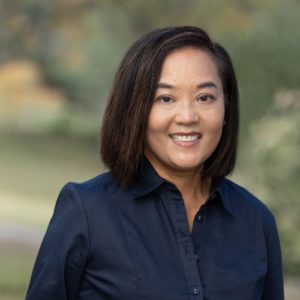
Why do you work at ACC?
I wholeheartedly embrace ACC’s mission of open access to higher education. Traditional higher education systems are based on standards and admissions that limit opportunities for students. Often, it’s not because they don’t qualify but because of the perceptions that it also requires students to conform to their traditional system. It also perpetuates the notion that they just can’t afford the tuition. ACC is fundamentally different — it is designed to foster success because of the low tuition, flexible scheduling, multitude of training programs, and resource support. Furthermore, life is not a perfectly linear path. ACC provides everyone a pathway to entry at any point in life. ACC embraces every student. The individualized focus on students is impactful not only to students but also to their families and even generations to come. I always get sentimental when past students email to let me know they got into an Ivy League school, pursued graduate school, taught in the inner city, or started law school. We never know where life will take our students after ACC. However, I am proud to be part of ACC because we are the conduit for and catalyst of change and increased opportunities for our students.
Why do you believe it’s important for the college to commemorate Asian American & Pacific Islander Month?
I personally feel the Asian American and Pacific Islander (AAPI) community is not as widely recognized in terms of our contributions to our American society as it ought to be. The AAPI community is very diverse, heterogeneous, and despite the “small” population perception, we are one of the fastest growing ethnic/racial groups. ACC’s focus on equity and inclusion is noteworthy and exemplified by the development of the Asian American Cultural Center. Celebrating AAPI reinforces our commitment to broadening awareness that we have AAPI staff, faculty, and students at ACC and further draws attention to not only the success of AAPI in higher education, but also the challenges we face. It’s another opportunity to openly foster dialogue to collaboratively improve circumstances for all.
What are some personal or professional accomplishments you are most proud of?
Serving as a Peace Corps volunteer was the most influential personal experience that truly shaped my understanding of the world and my commitment to service. The lessons I learned about myself while working internationally in a developing country still resonate today. It was instrumental because of the many “firsts” in my life such as flying in an airplane, living in an unfamiliar country with limited resources, navigating another culture with limited language skills, learning about international governmental and educational systems, and connecting with not only the Filipino community but also with people from all over the world.
Becoming dean of the Public and Social Services Division is undoubtedly one of my proudest professional accomplishments. The position has been humbling. I am constantly in awe by the level of expertise and professional accomplishments of our faculty and staff. This platform has also given me a broader awareness of how all of our programs collectively contribute to the greater good of society.
What’s the best lesson you’ve learned?
Never assume anything! Initial perceptions can be limiting so I try to remain nonjudgmental. It’s difficult because it’s human nature to judge or make assumptions but I know when I learn more about an issue, person, or culture, it has led to greater appreciation, clarity, and understanding.
Why do you feel it is important to seek out and value diverse perspectives?
This may come as no surprise, but I know I don’t have all the answers. When I embark upon a project or need to address an issue, I like to hear diverse perspectives because the assumptions that exist need to be contextualized and many times I have observed that others will present ideas or solutions that I didn’t originally consider. Synthesizing ideas improves the decision making process.
How do you build bridges in communities?
One personal experience that exemplified bridge building occurred while serving as a Peace Corps volunteer in the Philippines. During the first week of in-country training orientation, we were driven to unfamiliar parts of Manila, dropped off with no money, knew only basic greeting phrases in Tagalog, and were instructed to find our way back to the training compound. It was one of the scariest and yet most profound experiences in my life. Our only way back was to engage with local Filipinos. It was amazing how strangers opened up their homes, introduced us to their immediate and extended families, offered us food, and transportation although we were given explicit instructions to walk back. The experience made me realize the importance of being open and learning from others. Relationships are fostered and opportunities for change begin with just a simple conversation. Building bridges requires an openness to understanding the culture of communities.
What inspires you?
I am inspired by kindness. My family immigrated to the United States during the Vietnam War. If it were not for the kindness of others, we would not have been able to accomplish our American dream. Throughout my life, many people believed in me and provided support through successes and challenges. Simple acts of kindness can make a great impact.
I am also inspired by gourmet cooks. It amazes me how everything on television cooking shows looks fabulous and, I’m certain, tastes great! I always wonder how they do it. It’s an interesting mystery of culinary perfection.
Alicia Cordero
Meet Alicia Cordero, ACC Senior Academic Advisor, who has been with the college for five years.
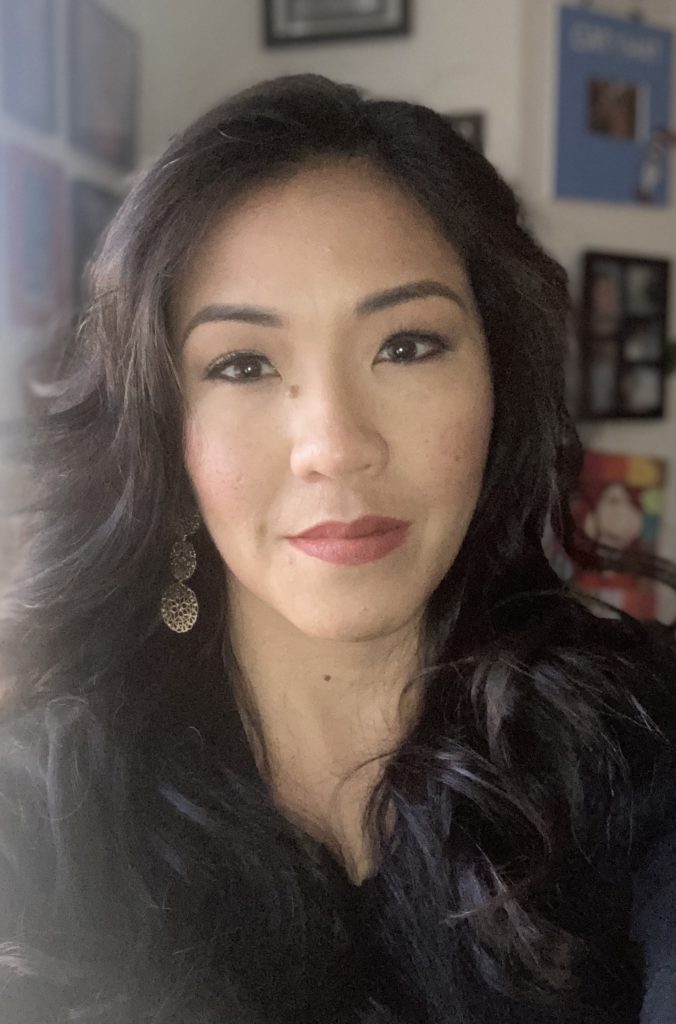
Why do you work at ACC?
I believe in the work ACC does for the Central Texas community. I enjoy academically advising students, assisting them with exploring their dreams and passions, and ultimately advocating for their success here at ACC and beyond.
Why do you believe it’s important for the college to commemorate Asian American & Pacific Islander Heritage Month?
As an institution of higher learning, it is important for ACC to commemorate Asian American & Pacific Islander Heritage Month because as a society we need to understand and embrace diverse populations and viewpoints in order to grow and succeed. At the risk of sounding naive, I believe that understanding people of all races and embracing cultural differences this month, and throughout the year, enables us to bring awareness to the work of anti-racism and become better stewards of equity and inclusion. We are better able to fight systemic racism, combat negative unconscious biases, and end microaggressions against Black, Indigenous, and People of Color (BIPOC).
It is also imperative that we recognize the terms ‘Asian American’ & ‘Pacific Islander’ are very broad names for distinct groups in American society. According to the 2020 U.S. Census Bureau (available from U.S. Census Bureau, 2020), the definition of “Native Hawaiian or Other Pacific Islander” includes all individuals who identify with one or more nationalities or ethnic groups originating in Hawaii, Guam, Samoa, or other Pacific Islands. Examples of these groups include, but are not limited to, Native Hawaiian, Samoan, Chamorro, Tongan, Fijian, and Marshallese. The category also includes groups such as Palauan, Tahitian, Chuukese, Pohnpeian, Saipanese, Yapese, and others. From the same source, “Asian” includes all individuals who identify with one or more nationalities or ethnic groups originating in the Far East, Southeast Asia, or the Indian subcontinent. Examples of these groups include, but are not limited to, Chinese, Filipino, Asian Indian, Vietnamese, Korean, and Japanese. The category also includes groups such as Pakistani, Cambodian, Hmong, Thai, Bengali, Mien, and others.
What are some personal or professional accomplishments you are most proud of?
Training and running the Austin Half Marathon (and full Marathon in 2016!) for the past nine years comes with so much pride. Parenthood is also something I hold in the highest regard with so much pride and gratitude. I believe there is no other accomplishment in life that encompasses the fear, anxiety, struggle, joy, love, and sometimes pain that comes from being a parent.
Professionally, I am most proud of the path I have traveled to become a Senior Academic Advisor at ACC.
What’s the best lesson you’ve learned?
I have definitely made some mistakes in life! The best lesson I’ve learned, both professionally and personally, is that progress of any kind requires hard work, communication, commitment, and time.
Why do you feel it is important to seek out and value diverse perspectives?
Without diverse perspectives, there is no growth. Seeking different viewpoints and exploring other frames of reference can reveal the true root of many societal problems. This can lead to solutions that, at first glance, may seem radical or too far outside the box, but when researched and applied, fair and equitable solutions can be found for all people.
How do you build bridges between communities?
I try to find natural ways to build bridges between communities in my everyday life. Whether it’s at my son’s school or sports functions, in my role as an ACC advisor, through my running groups, and even in my political affiliations. I am genuinely curious about others’ backgrounds and their struggles and triumphs. I use this knowledge to remember kindness and compassion are valued among all people. I realize at the end of the day we are all still individuals, but I hope we can learn and practice a mutual respect for one another.
What inspires you?
My family, especially my son, inspire me to strive to be a better human everyday.
Shun-Heng (Henry) Tsai
Meet Shun-Heng (Henry) Tsai, ACC career counselor and adjunct associate professor. Tsai has been with the college for 11 years.
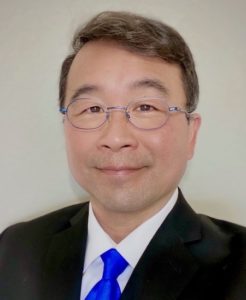
What are some personal or professional accomplishments you are most proud of?
Personally, after a lengthy immigration process, I became an U.S. citizen three years ago. Professionally, I have built my career in counseling since 2003 and advanced to Career Counseling with two more certifications earned since 2018.
Why do you work at ACC?
Recognized and named to Forbes’ top employer list, ACC is well known for its friendly learning and working environment. Students and employees enjoy its campus’ diverse culture and learning opportunities for personal and professional growth.
Why do you believe it’s important for the college to commemorate Asian American & Pacific Islander Heritage Month?
ACC advocates for diversity, equity, and inclusion, and commemorating Asian American & Pacific Islander (AAPI) Heritage Month will help students, staff, and faculty learn more about our AAPI groups’ unique cultures, perspectives, and contributions to the community and nation. It also makes AAPI individuals feel appreciated, supported, and visible on campuses.
What’s the best lesson you’ve learned?
Setting S.M.A.R.T. goals are so important. Be patient with the tasks and work you need to do — one at a time — and have faith in yourself and the effort you make. All attained and accumulated small goals will lead to the success you envision.
Why do you feel it is important to seek out and value diverse perspectives?
It helps us learn and appreciate others from different backgrounds. Through communication and interaction we gain valuable experiences when it comes to living and working in multicultural environments. With inclusiveness and sharing each of our own strengths we can achieve bigger goals.
How do you build bridges between communities?
Open communication, sharing of information, ideas and experiences, collaboration, and participation in community activities/events.
What inspires you?
My parents’ humble start of building their careers, their dedication to each other through ups and downs, generosity to others — especially for those in need, and their life stories that I will never get tired of listening to. All of these have inspired me to be a kind and empathetic person, and it sparked my career interest in counseling.
Kim Vo Langridge
Meet Kim Vo Langridge, ACC Marketing Graphic Design Lead. She has worked at the college for six years and has been a student since 2003.
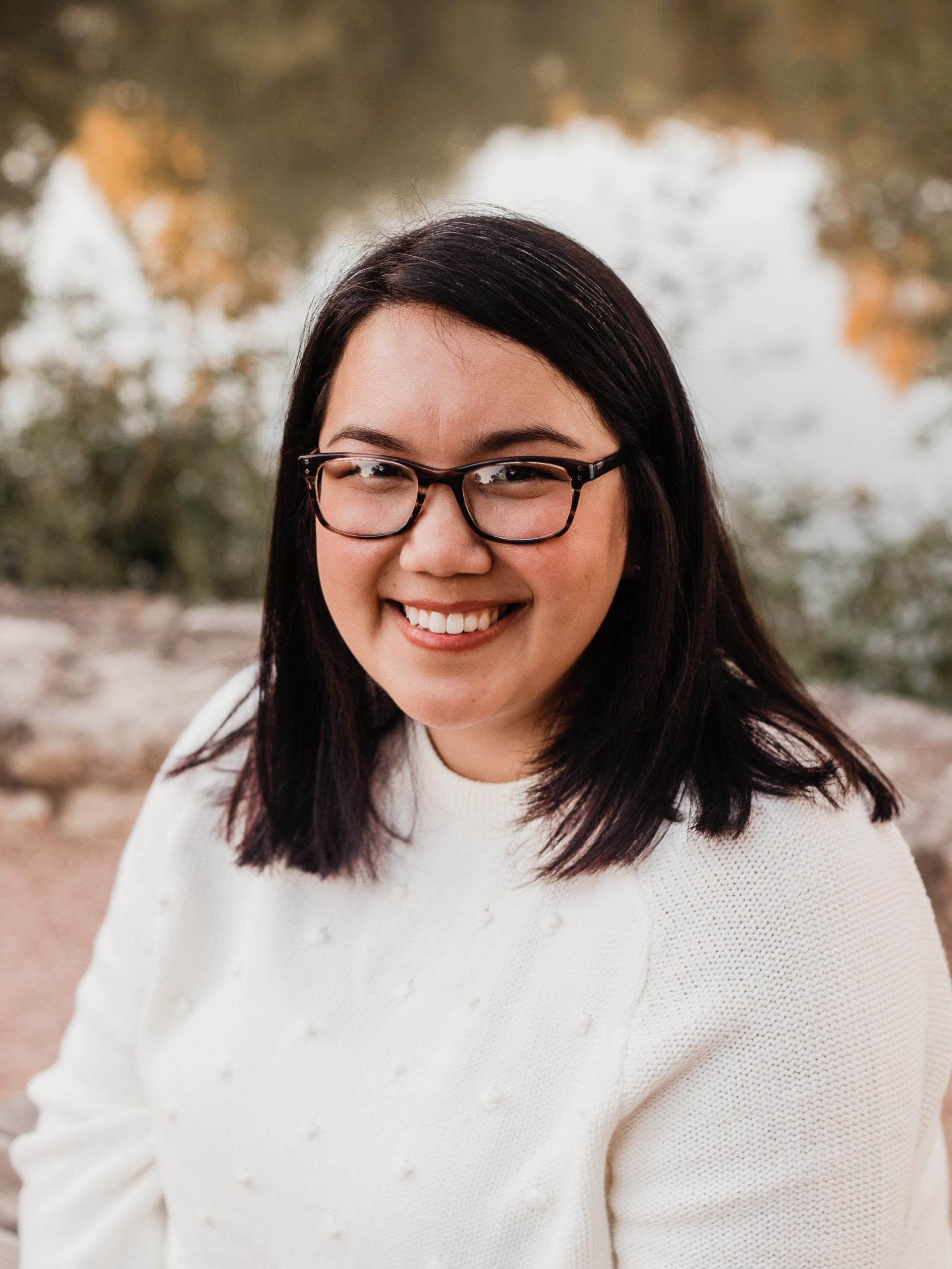
Why do you work at ACC?
I wanted to feel passionate about AND proud of what I do, something meaningful to both myself and others.
Why do you believe it’s important for the college to commemorate Asian American & Pacific Islander Heritage Month?
The false “model minority” stereotype casts all Asians as privileged and academically high achieving, pits our AAPI community against other marginalized communities, and too often leaves the AAPI community out of important conversations about ending educational equity and working toward social justice. It’s important we come together to highlight the unique experiences of our students, faculty, staff, and their families. We can ensure that AAPI students are no longer held to a false model minority standard or faced with the prevalent obstacles of educational inequity. It’s imperative that we champion the stories of our students every month, increase awareness of their needs, and highlight and celebrate the assets of the cultures and values that encompass the AAPI community.
What are some personal or professional accomplishments you are most proud of?
I’m most proud of being a mom, the hardest job in the world (and my toddler — for better or worse — is exactly like me); my time in the ACC Leadership Academy (shout out to the 2017–18 cohort!); the professional relationships I’ve made at ACC; and having a hand in modernizing and taking the marketing designs at ACC to the next level (and winning some awards along the way).
What’s the best lesson you’ve learned?
Be flexible with your goals. Living post-COVID has really taught me that change is inevitable, sometimes it’s big, sometimes small, and that my goals need to be flexible if I’m going to achieve them. You can adopt an all-or-nothing attitude and never accomplish anything (which leads to more stress).
Why do you feel it is important to seek out and value diverse perspectives?
It is important that diverse perspectives are included in any setting in order to foster a societal culture of tolerance, respect, and understanding.
How do you build bridges between communities?
Nurture relationships: I get out there, participate in organizations/groups/clubs I’m passionate about, listen to people’s stories, invite people to ask challenging questions, and be empathetic.
What inspires you?
My family, my friends, good books, and sometimes (embarrassingly) TikTok.

